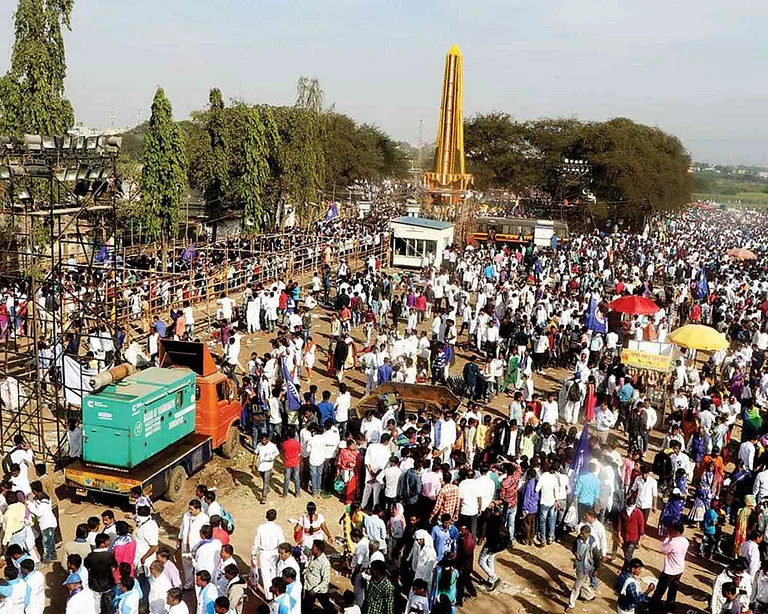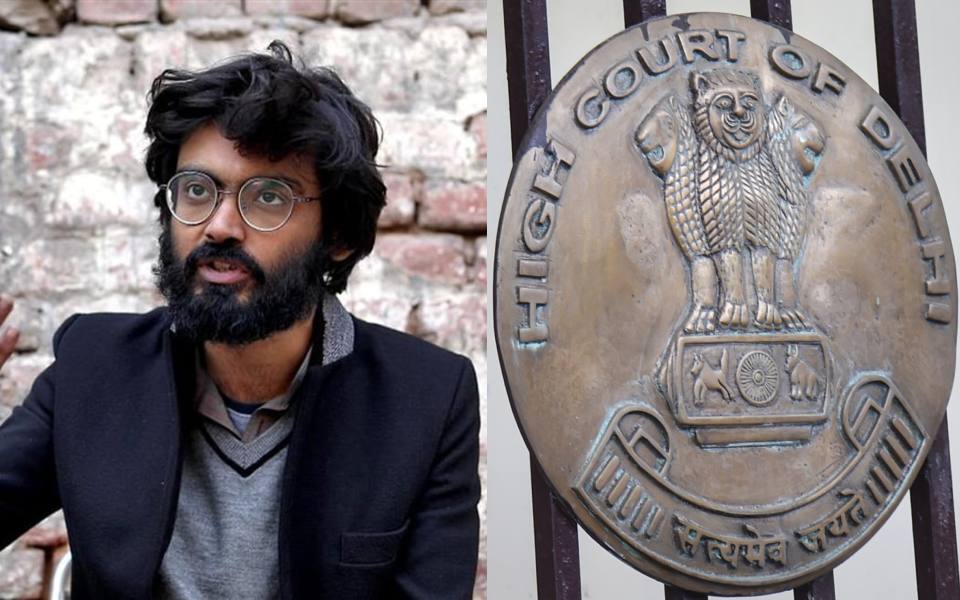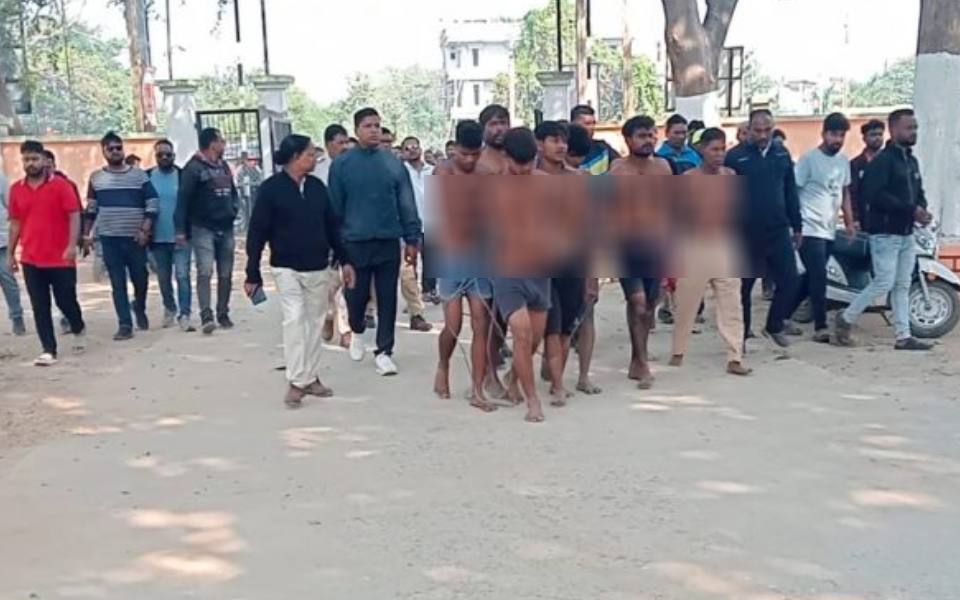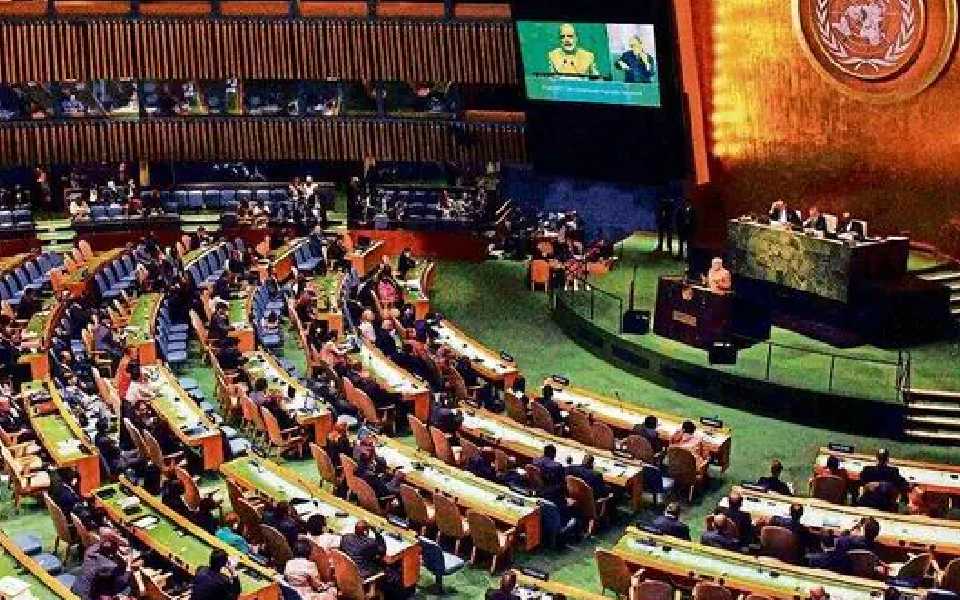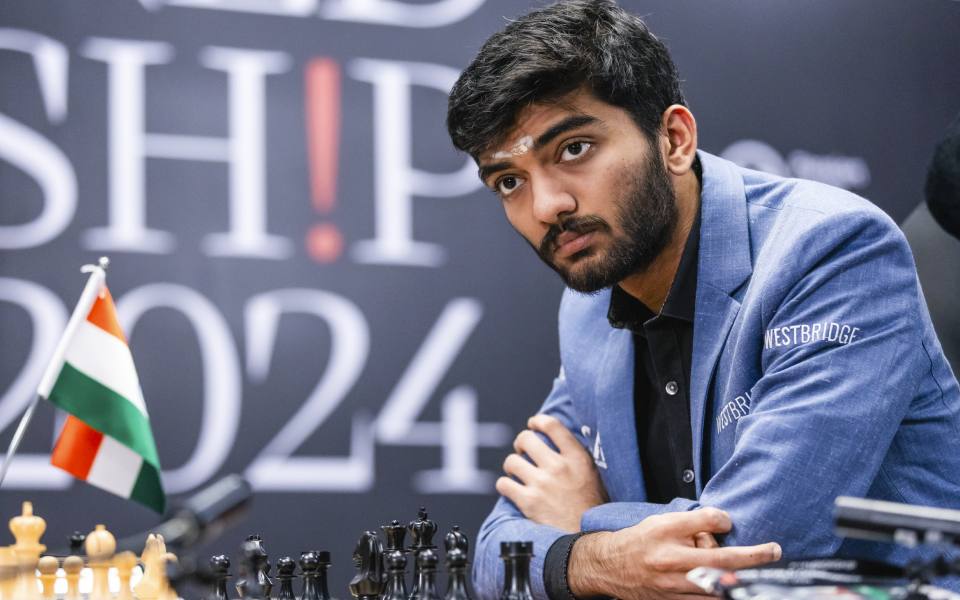Pune, Jan 1: Undeterred by the rising number of COVID-19 cases and the pandemic-related restrictions, thousands of people paid tributes at the Jaystambh military monument in Pune district of Maharashtra on Saturday morning to mark the 204th anniversary of the Koregaon Bhima battle amid tight security.
In contrast to the 203rd anniversary of the historical battle last year, which was a low-key affair due to pandemic curbs, many people have paid their tributes at the Jaystambh, which, as per a Dalit narrative is the symbol of the victory over casteism.
Maharashtra Deputy Chief Minister Ajit Pawar, state home minister Dilip Walse Patil, social welfare minister Dhananjay Munde also visited Jaystambh, located near Perne village, this morning.
As per the Dalit narrative, the British forces that fought the Peshwas at Koregaon Bhima on January 1, 1818, comprised largely of soldiers from the Dalit Mahar community, who waged a "war for freedom" from 'casteism' of the Peshwas.
On January 1 every year, lakhs of people, mainly from the Dalit community, visit the Jaystambh, which was erected by the British in memory of the soldiers who fought against the Peshwas in the Battle of Koregaon Bhima.
Violence had broken out near Koregaon Bhima village during the 200th commemoration of the historical battle on January 1, 2018. According to police, "provocative" speeches made at the Elgar Parishad conclave held in Pune city a day before had triggered the violence.
A senior police officer said on Saturday that the district administration had appealed to people above 60 and children below 10 years to avoid coming to Jaystambh in view of the coronavirus pandemic.
Police personnel are deployed in large numbers near the war memorial. Facilities like COVID testing etc are in place, the officer said.
As per the order issued by the Pune district administration under section 144 of the Code of Criminal Procedure (CrPC), putting up hoardings or banners in the villages around the memorial, posting content that can spread rumours, create hatred in communities, posting misleading information on social media platforms, has been prohibited.
The order came into effect from midnight of December 30 and will remain in force till 6 am on January 2.
Let the Truth be known. If you read VB and like VB, please be a VB Supporter and Help us deliver the Truth to one and all.
New Delhi, Dec 12: Student activist Sharjeel Imam told the Delhi High Court on Thursday that he had no "connection" with any of the alleged co-conspirators of the communal riots here in February 2020 and that his public speeches repeatedly called for non-violence.
Imam said he has been in custody for more than four years and requested a bench headed by Justice Navin Chawla to grant him bail in the "larger conspiracy" case under the anti-terror law, Unlawful Activities (Prevention) Act (UAPA).
Umar Khalid, Imam and several others have been booked under the UAPA and provisions of the Indian Penal Code for allegedly being the "masterminds" of the February 2020 riots, which had left 53 people dead and more than 700 injured.
The violence had erupted during the protests against the Citizenship (Amendment) Act (CAA) and National Register of Citizens (NRC).
"There are absolutely no chats between me and any of the co-conspirators. No chats, no calls with any of the co-conspirators in the case. Yet they rely on my chats to implicate me. There is nothing in my chats to remotely suggest that I intended to incite any violence.... I am the only one with no connection with anybody at all," Imam's counsel argued before the bench, also comprising Justice Shalinder Kaur.
"There is no call for violence in any of my speeches. There are repeated calls for non-violence," he emphasised.
It was also said that Imam had raised the protest site at Shaheen Bagh, which remained non-violent throughout, and "distanced" himself from the site in January, fearing violence.
Imam's counsel further said his client had left Delhi in the middle of January 2020 and was already in custody after his arrest by the Delhi Police on January 28 in connection with another FIR when the February 2020 meeting of the co-accused persons took place to "change the nature of protests" on account of the visit of then US president Donald Trump. Violence broke out later that month.
Imam's arrest in the case on August 25, 2020, the lawyer said, was based only on belated witness statements recorded to implicate him.
The bench questioned Imam's counsel if his reference to "Ghazwa-e-Hind", according to the statement of a witness, in one of his interactions with the public was not to instigate violence.
"The statement was made six months later just to implicate me. What I said is in the open," the lawyer replied.
"He has remained in jail for five years. He is a student. He had no running with the law in this set of cases," the lawyer said.
The court was also informed that Imam was on bail in four other cases registered against him over alleged inflammatory speeches.
The lawyer further said that at a meeting that Imam attended with Khalid in December 2019, there was "absolutely nothing on violence", but a general discussion on "how everyone has to come together" in the face of the citizenship law.
"There is a rich history of chakka jam being used as an effective method of protest in the country pre and post independence. There was no reference to any violence," he said.
Imam also requested the court to consider that other co-accused like Devangana Kalita and Natasha Narwal are already on bail in the case.
The bail pleas by other co-accused -- Khalid Saifi, Gulfisha Fatima and others -- are pending in the high court since 2022 and were heard by different benches from time to time.
Khalid's bail plea is also pending in the court.
The matter would be heard next on December 20.

